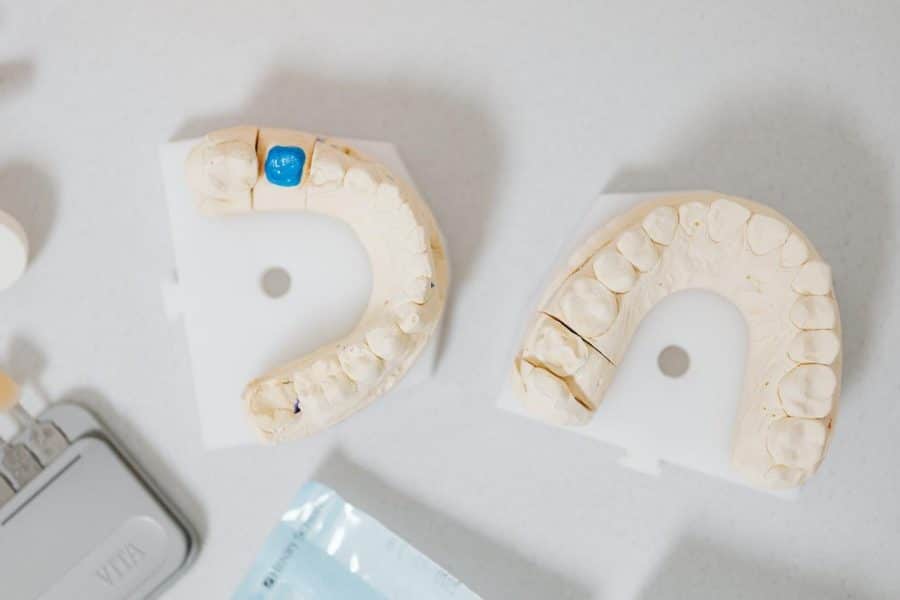Emergencies can occur at any time of day. Toothache is one of the most common signs that patients suffer. Staying prepared is wise but we never know when one will call us. A dentist's correct diagnosis is the surest way to find instant relief from a toothache, and possibly keep you from running into a bigger problem.
So, Kanata Dental gathered you these signs, which may help you to know about your toothache. If you have this sign you should visit your dentist right now.
“Life is short, so smile while you're always teething.”
1. Experiencing Bleeding:
It's a cause for concern to see your gums bleed when you clean or floss. It is a symptom of gingivitis or gum disease. You may also detect an odour when the gums are flossing, swelling or aching. Treating early gum disease is paramount. It will leave you with the inability to return your teeth to a stable state once the disease reaches a certain level. And seeing the dentist right away to decide what exactly is going on and to establish a treatment plan will literally save your smile!
2. You have Sudden Tooth Loss:
Losing a tooth as an adult can be not only unpleasant but also cosmetically undesirable. When a tooth is knocked out, falls out or is loose, you'll probably want to call your dentist. The tooth can remain viable and may probably be replanted if action is taken quickly. You need to act quickly! So, if your face has taken a soccer ball, or your tooth has chosen to become one with your apple... save the tooth and call the dentist! Your dentist can send you instructions on how to preserve the tooth before you get to the office.
Time is a critical. Therefore, it’s crucial to act quickly by contacting a local dental expert, such as a dentist Hervey Bay, to determine the best action for a knocked-out tooth. Placing the knocked-out tooth into the socket within five minutes increases its chance of survival. Proper storage of the tooth can give it a good survival rate within an hour.
Keep the knocked-out tooth moist at all times in the mouth. If placing it back into the socket isn’t possible, place the tooth in milk inside the mouth next to the cheek. You can also use emergency tooth preservation kits. Never attempt to soak it with tap water because the tooth’s root cells can’t tolerate it for too long.
3. The swelling you have:
Swelling can be a significant sign of infection. Your mouth infection can potentially be life-threatening. It is critical that you get quickly seen by a dentist. Swelling can occur in your gums, face or even lymph nodes. An untreated infection can reach your bloodstream and trigger a few serious health issues. Be sure to tell your dentist how long you have been having swelling, where it is located and any other symptoms you might have of infection.
Never ignore any oral swelling. Otherwise, you’ll develop chronic gingivitis. This condition can affect the underlying tissue and jaw bone, leading to periodontitis. This infection can cause tooth loss. Periodontal disease also affects the person’s overall health, possibly causing systemic diseases, including diabetes mellitus and cardiovascular diseases.
4. You've got a cracked or broken tooth:
A cracked or broken tooth can be caused by teeth-grinding pressure. Also, large fillings can weaken the tooth’s integrity. The same holds with biting or chewing hard foods, including hard candy, ice, and nuts. A strong blow to the mouth because of sports activity, a car accident, or a fistfight can cause a cracked or broken tooth.
The position and extent of your cracked or broken tooth will decide your dentist's care path. Saving the tooth is also important. It's important to you being seen in a timely manner to do that. Make sure to explain how the accident happened when contacting the dentist if appropriate.
5. You're in Pain:
Pain that keeps you awake radiates to your back, jaw or ear is normal when you're having a severe dental problem. Lying down, when this form of pain is present, will increase the discomfort. You can also get constant throbbing, irritation and/or facial swelling in your ears. A dentist can do an examination and take a few x-rays to decide what is going on. It is critical that you be signed immediately so you can start ASAP care.
6. You have a growth or sore:
It is a good idea to contact your dentist if you find growth in your mouth. A growth or sore not going away may be a symptom of oral cancer. A dentist can have screening for visual cancer and even use a tool that can detect defects otherwise not seen by the naked eye.
7. You have a metal taste in Your Mouth:
A lot of people got amalgam (metal) fillings before composite (tooth coloured) fillings became the standard. If you have a metal taste in your mouth, an old filling might have become loose, or cracking may be likely. Leaving a fill in this condition will leave the tooth vulnerable to cavity and infection. Call your dentist to stop the toothache to a potential root canal.



